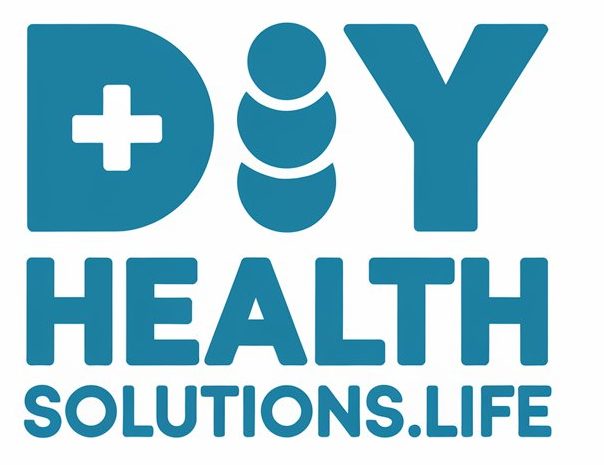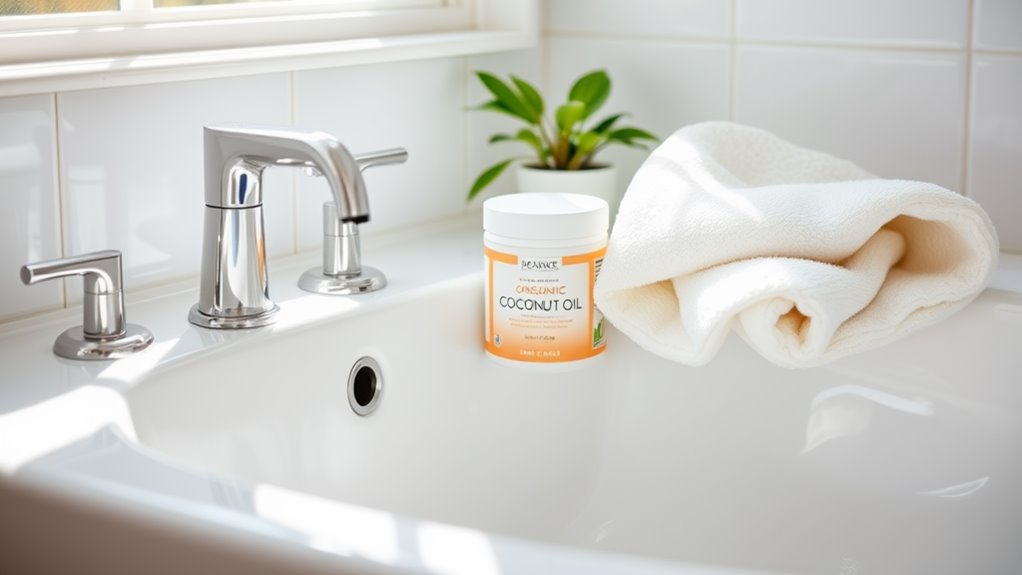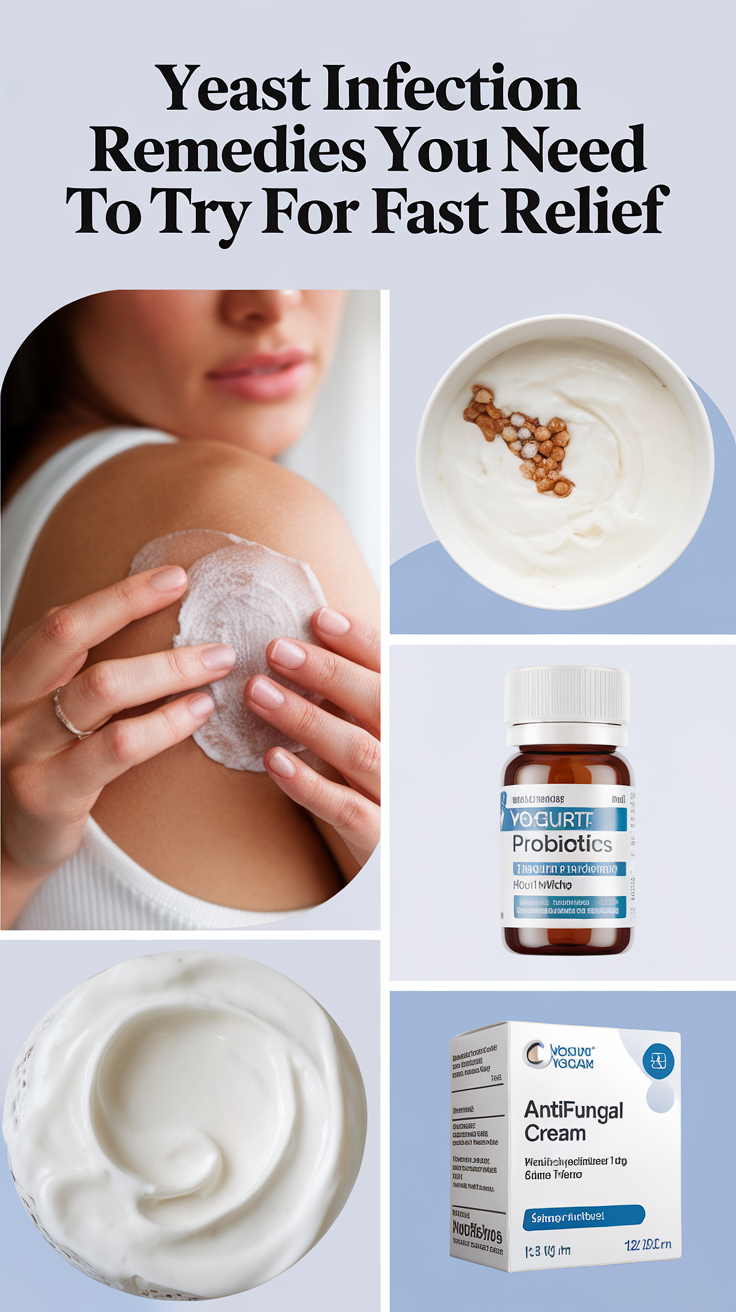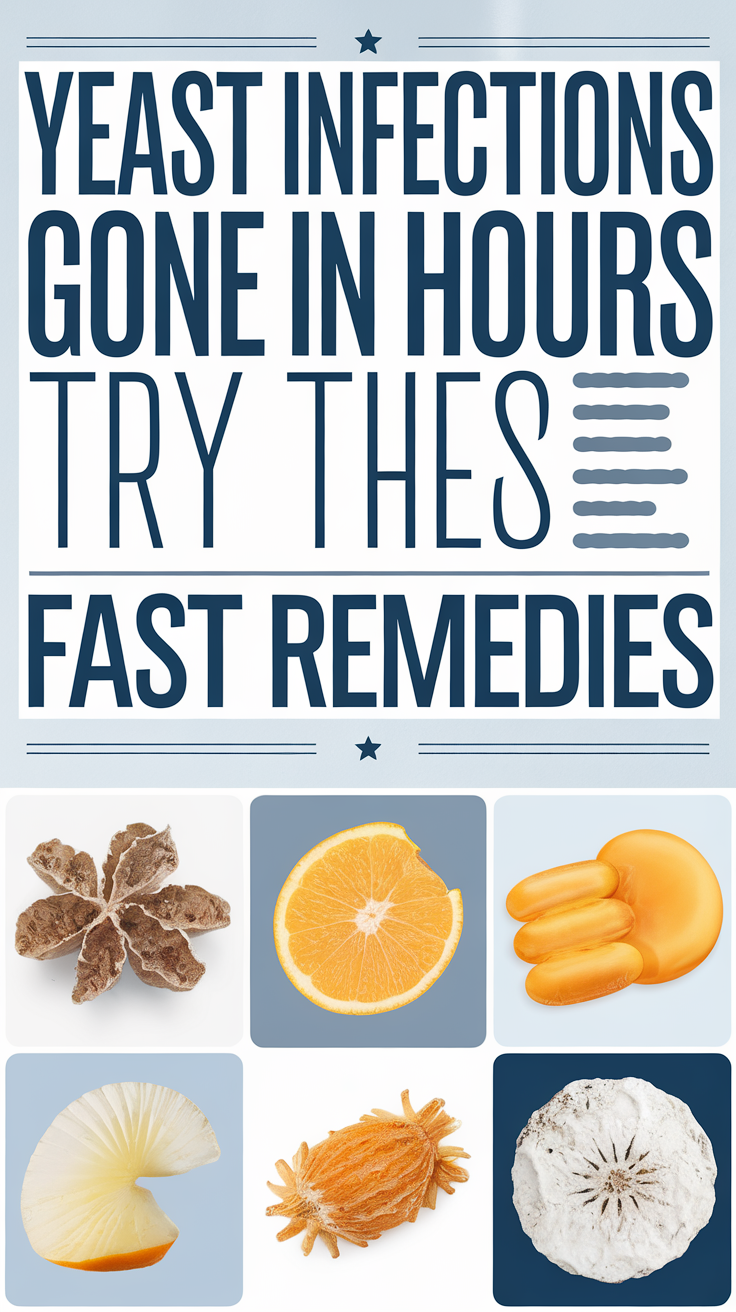Yeast Infection Prevention- What You Need to Do
To prevent yeast infections, start by keeping things clean and dry down there—good hygiene is super important! Wear breathable cotton underwear, and change out of wet clothes quickly. A diet low in sugar and high in whole foods helps keep your body in balance. Don’t forget to drink plenty of water and try adding probiotics from yogurt or sauerkraut into your meals. Managing stress is key too, so make time for relaxation or fun activities. If symptoms pop up, don’t hesitate to consult a doc. There’s even more useful info coming your way, so stick around!
Understanding Yeast Infections
Yeast infections are a common issue that many people face at some point in their lives. They happen when there’s an overgrowth of yeast, a type of fungus, usually found in your body.
Don’t worry; you’re not alone! It might seem a bit gross, but your body has yeast that helps with digestion and other functions.
When the balance of good bacteria and yeast gets disturbed, it can lead to an infection. Factors like stress, antibiotics, or even a diet high in sugar can tip that balance.
You may notice symptoms like itching, burning, or unusual discharge, which can be pretty uncomfortable.
But hey, it’s important to remember that yeast infections are treatable! You don’t have to suffer in silence. Many people find relief with over-the-counter creams or medications.
Just be sure to check with a healthcare provider if you’re unsure about your symptoms or if it’s your first time dealing with one.
Importance of Proper Hygiene
Maintaining proper hygiene is crucial for preventing yeast infections and keeping your body balanced. You mightn’t think about it every day, but the little things really do make a big difference!
First off, always keep your genital area clean and dry. Moisture creates a perfect home for yeast, and we definitely don’t want that!
When you shower, use mild soaps and avoid harsh fragrances. Think of your body as a garden; you don’t want to drown it in chemicals that can cause irritation.
Also, wearing breathable underwear, like cotton, can help keep things airy down there.
It’s good to change out of wet clothes, like swimsuits or gym gear, as soon as you can. Just like leaving a wet sponge around can lead to mold, soggy clothes can invite yeast.
Dietary Changes for Prevention
Making smart dietary choices can significantly reduce your risk of developing yeast infections. First off, try to cut back on sugary foods and drinks. Yeast loves sugar, so when you munch on those sweets, you’re basically throwing a party for it. Instead, opt for whole foods like fruits, veggies, whole grains, and lean proteins. These foods not only keep your body healthy but also help balance your gut.
Next, include some probiotics in your diet. Foods like yogurt, kefir, and sauerkraut are packed with good bacteria that can help keep yeast in check. It’s like giving your body a little army to fight off the bad guys!
Don’t forget to stay hydrated. Drinking plenty of water helps flush out toxins and keeps everything running smoothly. Plus, it’s great for your skin, too!
Finally, limit your intake of processed foods and refined carbs. These can spike your blood sugar levels, which might lead to more yeast issues.
Choosing the Right Clothing
When it comes to preventing yeast infections, the clothes you wear play a big role.
Choosing breathable fabrics, like cotton, helps keep things fresh and happy down there.
Plus, avoiding tight clothing can make a huge difference—after all, nobody likes feeling squished!
Fabric Breathability Matters
Choosing the right clothing is crucial for preventing yeast infections, especially since fabric breathability plays a significant role in moisture control. When you wear breathable fabrics, like cotton, your body can “breathe” better, which helps keep moisture at bay.
If you’re wearing synthetic materials, they can trap heat and sweat, creating a cozy home for yeast. And trust me, that’s not the kind of roommate you want!
Think of it this way: when the weather gets warm, you wouldn’t wear a heavy winter coat, right? You’d opt for something light and airy. The same idea applies to your underwear and workout clothes.
Look for garments with moisture-wicking properties. These types of fabrics pull sweat away from your skin, keeping you dry and comfortable.
Also, don’t forget about layering! Sometimes, wearing breathable layers can help regulate your body temperature, too.
So, when you’re shopping, keep an eye out for those breathable options. You’ll not only feel better, but you’ll also help your body stay balanced.
Avoid Tight Clothing
While breathable fabrics are important, the fit of your clothing also plays a significant role in preventing yeast infections. Wearing tight clothing can trap moisture and heat, creating a cozy environment for yeast to thrive. And trust me, that’s not the kind of cozy you want!
When you choose your outfits, think about how snug they are. Tight jeans, leggings, or form-fitting underwear might look cute, but they can lead to discomfort and increase the risk of infections. Opt for looser-fitting clothes that allow air to circulate. Think about flowing skirts or roomy shorts—your body will thank you!
Also, consider your activities. If you plan to work out, wear breathable materials that don’t cling too tightly. After all, you want to sweat, but not in a way that invites unwanted guests.
Impact of Antibiotics
Antibiotics can significantly impact your body’s natural balance of bacteria, often leading to an increased risk of yeast infections.
When you take antibiotics, they don’t just target the bad bacteria causing your illness; they can also wipe out some of the good bacteria in your body. This imbalance can create a perfect environment for yeast, like Candida, to thrive.
You might be thinking, “Oh no, not another issue!” But don’t worry, you can take steps to help prevent this.
Eating yogurt with live cultures can be a tasty way to boost those good bacteria. Probiotics are your friends here!
Also, be cautious with how often you need antibiotics. If there’s a chance you can fight off an illness naturally, it might be worth considering.
Managing Stress Levels
Managing stress levels is crucial for maintaining your overall health and reducing the risk of yeast infections. When you’re stressed, your body releases hormones that can throw off the balance of good bacteria in your system. This can create a perfect home for yeast to thrive. So, what can you do?
First, try to find activities that help you relax. Whether it’s reading a book, taking a walk, or practicing yoga, find what works for you. Even deep breathing exercises can work wonders! You could think of it as giving your mind a mini-vacation, which we all need sometimes.
Also, don’t forget the power of laughter! Watching a funny movie or sharing jokes with friends can lighten your mood and lower stress. Plus, it’s a great way to bond!
Make sure you’re getting enough sleep, too. When you’re well-rested, you’re better equipped to handle life’s ups and downs.
Probiotics and Their Benefits
Probiotics are like little superheroes for your body! They help keep your gut flora balanced, support your immune system, and even enhance your vaginal health.
Gut Flora Balance
A balanced gut flora is essential for overall health, including the prevention of yeast infections. Your gut is home to billions of tiny microbes, and they all work together to keep your system running smoothly.
When your gut flora is off balance—thanks to things like stress, poor diet, or antibiotics—you might notice unwelcome guests, like yeast infections, popping up.
So, how do you keep your gut flora happy? Probiotics are your best friends! These friendly bacteria, found in yogurt, kefir, and even some supplements, help maintain that balance.
Think of them as little warriors fighting off the bad guys. When you include probiotics in your diet, you’re giving your gut the support it needs to stay in check.
It’s not just about eating yogurt, though! A varied diet rich in fruits, veggies, and whole grains can also help.
Fiber feeds the good bacteria, so think of it as their favorite snack. Remember, a happy gut equals a happy you!
Immune System Support
There’s a good chance you’ve heard about the benefits of probiotics, especially when it comes to boosting your immune system. These friendly little bacteria aren’t just good for your tummy; they can help your body fend off pesky infections, including yeast infections.
By supporting your immune system, probiotics give your body a better chance to fight off harmful invaders. When you take probiotics, you’re introducing good bacteria that help keep your gut flora balanced. A happy gut means a happier immune system!
It’s like having a team of superheroes ready to defend you from illness. Plus, studies show that a strong immune system can reduce the risk of yeast infections, making those little critters less likely to bother you.
You can find probiotics in foods like yogurt, kefir, and even some cheeses. If you’re more into pills, there are plenty of probiotic supplements out there too.
Just remember, consistency is key. So, whether you’re munching on yogurt or popping a pill, make it a part of your daily routine. Your immune system will thank you, and you might just keep those yeast infections at bay!
Vaginal Health Enhancement
Maintaining a balanced gut flora not only boosts your immune system but also plays a vital role in vaginal health.
You mightn’t realize it, but your gut and vagina are best buddies. When your gut’s happy, your vaginal health can shine too! Probiotics are tiny superheroes that help keep your body balanced, and they can do wonders for your vaginal health.
Here are three benefits of probiotics for your vaginal well-being:
-
Restores Balance: Probiotics help maintain the right balance of bacteria in your vagina, preventing pesky infections from taking over.
-
Boosts Immunity: A healthy gut flora supports your immune system, making it tougher for harmful bacteria and yeast to wreak havoc down there.
-
Improves Digestion: Good digestion means less bloating and discomfort, which can help you feel more comfortable overall, including in your intimate areas.
When to Seek Medical Advice
Knowing when to seek medical advice for a yeast infection is crucial for your health. If you notice symptoms like itching, burning, or unusual discharge that lasts longer than a few days, it’s time to call your doctor. Trust me, no one wants to deal with a stubborn yeast infection that won’t go away on its own!
It’s also important to reach out if this is your first time experiencing these symptoms. You might be thinking, “Is this really a yeast infection or something else?” A healthcare professional can help you figure that out.
If your symptoms are severe or if you have recurring infections, your doctor can suggest the best treatment for you.
Don’t forget that certain conditions, like diabetes or a weakened immune system, can complicate things. If you fit into any of these categories, consulting your healthcare provider is key.




